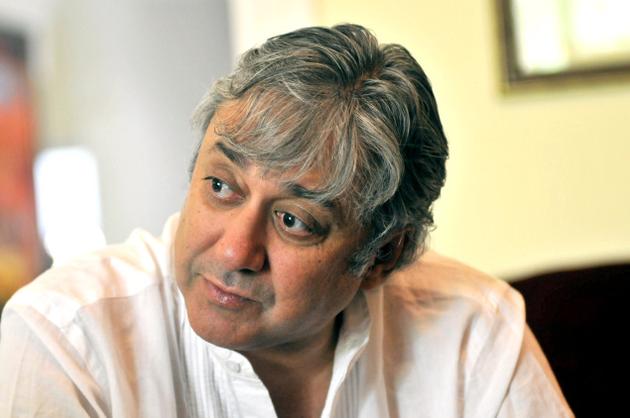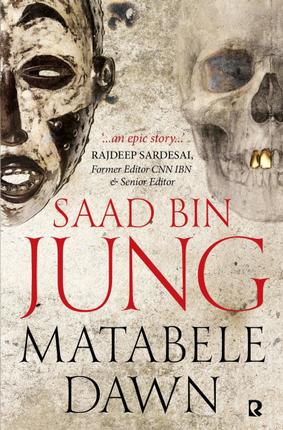
Saad Bin Jung talks about his latest book and what inspired him to pen the thought provoking pages.
Saad Bin Jung is reviving his touch with what we call ‘civilization.’ After spending months in the jungle resorts which he owns in Karnataka and Africa, Saad is seemingly enjoying his life though he would love to return to the jungle at the first instance. After all, holidaying there had never been his intention.
He plays a jungle guide, photographer, observer and lover of the natural life that surrounds him. His visit to the city is with a purpose and closely linked to the life he spends and the thoughts that cross his mind as he watches the animals enjoy the wilderness. He , is currently engaged in a multi-city tour to launch his recently authored book Matabele Dawn. Having dedicated his life to conservation, he has spent time with many tribes, in many parts of Africa and India.

So is Matabele Dawn a culmination of these experiences? “These fortunate meetings have made me realise that conservation is all about addressing a conflict. The conflict between the authorities and the local people /tribes that live in remote areas of both Africa and India. They are a forgotten people that eke out a living against all odds and live in the buffer regions of our protected forests.” He adds, “It is nice to be back in familiar space for a change. But I would prefer the wilderness any day.” And this wilderness helped Saad complete the book comparing his life in India and Africa. The author and activist describes the book as a thought-provoking journey through the heart of Africa and India. Saad elaborates , “Matabeleland was a thriving nation in erstwhile Zimbabwe. When Cecil Rhodes believed that King Solomon’s mines were located here, he mowed down the tribe. In a matter of months Matabeleland ceased to exist. No such mines were found but beautiful people were annihilated.
The book is about the journey of a few of that tribe, about their trials and tribulations as they move towards Maasailands in search of their destiny. Set deep in the heart of tribal India and Africa, it unfolds an epic saga of two lives in disarray where the solution is more lethal than the problem. Chenjerai is born in the African bush and a nation is wiped out. Shaaz’s birth in Europe heralds World War II. Chaos rule their lives and their search for answers remains elusive. When the veil does lift, it brings them face to face with a terrifying evil, one that threatens not just both their lives but also that of generations to come. From the Matabeles of Lobengula and the Maasai of Mbatiany to the Nawabs of India and the Gonds of Bastar, their quest cuts across the very heart of two mysterious worlds, leaning on each other, creating chaos.
The author claims he wrote the book in a way that enables one to smell the land, touch the wilderness and embrace the people and, above all, be a part of the story that shaped the history of both the regions. Real incidents also went onto inspire the author in Saad. “When I read about our Indian tribal girls in central India being tortured and physically abused, my blood boiled and my mind started to tick. The final straw was when I went to Africa and learnt of the Matabeles. That’s when I knew a book was coming but exactly where and how, I was not certain. Through my travels in Africa, the idea of Chenjerai took final shape and finally when I read the old books on central India, about the Nawabs and the tribes therein, the character of Shaaz was born. That I was upset at the way Africa had been raped is without any doubt. A motive took birth and the final puzzle of the book fell into place,” he says.
The descendant of the Paigah family is also troubled at the ease with which India rescinded on its constitutional assurances. He says, “One such promise being the abolishment of the privy purses; having experienced first hand life among a beautiful set of truly vulnerable people, I witnessed the 5000 year old institution of Indian royalty being wiped out from the face of this earth in but a matter of days. It’s filled me with unending anger and frustration and Matabele Dawn was the culmination of such harsh realities that I was exposed to — both in India and Africa — through my journey of life.”
source: http://www.thehindu.com / The Hindu / Home> Features> MetroPlus / by Prabalika M. Borah / December 18th, 2014








